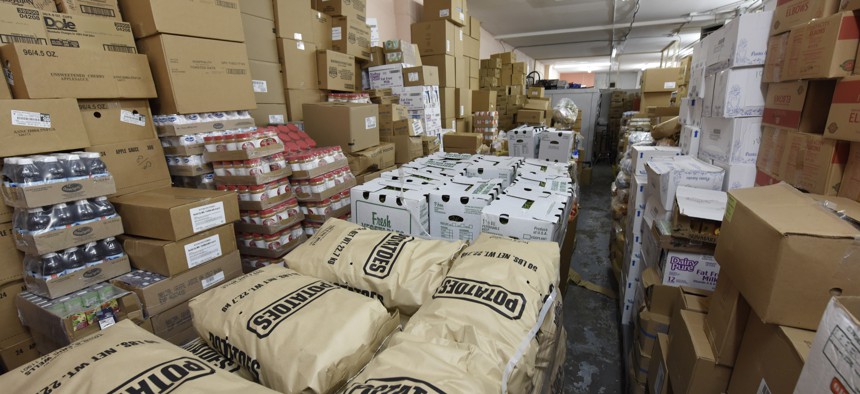Report: NYC food pantries and soup kitchens see increasing demand

Sacks of food at food pantry operated by the Bed-Stuy Campaign Against Hunger. Shutterstock
About three-quarters of food pantries and soup kitchens saw an increase in the number of visitors who rely on emergency food programs – particularly families, the elderly and immigrants – according to a new survey from the Food Bank For New York City.
Increased visits from families with children was the most common trend seen across the food pantries and soup kitchens surveyed, according to the report, with many citing the rising cost of living and living on a single income as major reasons for their food insecurity. More than half of the organizations reported an increase in visits from immigrant families specifically, which has led to one-fourth of emergency food providers deciding to provide new services specifically for the immigrant community.
The report comes out as the Trump administration has continued to push forward proposals that are expected to reduce enrollment for food stamps. The U.S. Supreme Court recently allowed the public charge rule – which makes it more difficult for immigrants to obtain permanent residency if they receive public assistance – to go into effect, stoking fears that immigrants will now forgo benefits such as food stamps. And in December, the Trump administration approved a new rule – which is facing litigation – that could result in about 70,000 able-bodied adults without children in New York City losing their Supplemental Nutrition Assistance Program benefits.
“Federal policy proposals that undermine public assistance and target immigrant populations are amplifying need and straining resources in our most vulnerable communities,” Margarette Purvis, president and CEO of Food Bank For New York City, said at the press conference announcing the report. “Our network of emergency food providers is proving itself as a capable disaster relief network, but that is not sustainable. Charity cannot replace bad policy.”